第74章
Did Francis Bacon write Shakespeare's Works? Nobody knows.
We cannot say we KNOW a thing when that thing has not been proved.KNOW is too strong a word to use when the evidence is not final and absolutely conclusive.We can infer, if we want to, like those slaves....No, I will not write that word, it is not kind, it is not courteous.The upholders of the Stratford-Shakespeare superstition call US the hardest names they can think of, and they keep doing it all the time; very well, if they like to descend to that level, let them do it, but Iwill not so undignify myself as to follow them.I cannot call them harsh names; the most I can do is to indicate them by terms reflecting my disapproval; and this without malice, without venom.
To resume.What I was about to say was, those thugs have built their entire superstition upon INFERENCES, not upon known and established facts.It is a weak method, and poor, and I am glad to be able to say our side never resorts to it while there is anything else to resort to.
But when we must, we must; and we have now arrived at a place of that sort....Since the Stratford Shakespeare couldn't have written the Works, we infer that somebody did.
Who was it, then? This requires some more inferring.
Ordinarily when an unsigned poem sweeps across the continent like a tidal wave whose roar and boom and thunder are made up of admiration, delight, and applause, a dozen obscure people rise up and claim the authorship.Why a dozen, instead of only one or two? One reason is, because there are a dozen that are recognizably competent to do that poem.Do you remember "Beautiful Snow"? Do you remember "Rock Me to Sleep, Mother, Rock Me to Sleep"? Do you remember "Backward, turn, backward, OTime, in thy flight! Make me a child again just for tonight"? Iremember them very well.Their authorship was claimed by most of the grown-up people who were alive at the time, and every claimant had one plausible argument in his favor, at least--to wit, he could have done the authoring; he was competent.
Have the Works been claimed by a dozen? They haven't.
There was good reason.The world knows there was but one man on the planet at the time who was competent--not a dozen, and not two.A long time ago the dwellers in a far country used now and then to find a procession of prodigious footprints stretching across the plain--footprints that were three miles apart, each footprint a third of a mile long and a furlong deep, and with forests and villages mashed to mush in it.Was there any doubt as to who made that mighty trail? Were there a dozen claimants?
Where there two? No--the people knew who it was that had been along there: there was only one Hercules.
There has been only one Shakespeare.There couldn't be two;certainly there couldn't be two at the same time.It takes ages to bring forth a Shakespeare, and some more ages to match him.
This one was not matched before his time; nor during his time;and hasn't been matched since.The prospect of matching him in our time is not bright.
The Baconians claim that the Stratford Shakespeare was not qualified to write the Works, and that Francis Bacon was.
They claim that Bacon possessed the stupendous equipment--both natural and acquired--for the miracle; and that no other Englishman of his day possessed the like; or, indeed, anything closely approaching it.
Macaulay, in his Essay, has much to say about the splendor and horizonless magnitude of that equipment.Also, he has synopsized Bacon's history--a thing which cannot be done for the Stratford Shakespeare, for he hasn't any history to synopsize.
Bacon's history is open to the world, from his boyhood to his death in old age--a history consisting of known facts, displayed in minute and multitudinous detail; FACTS, not guesses and conjectures and might-have-beens.
Whereby it appears that he was born of a race of statesmen, and had a Lord Chancellor for his father, and a mother who was "distinguished both as a linguist and a theologian: she corresponded in Greek with Bishop Jewell, and translated his APOLOGIA from the Latin so correctly that neither he nor Archbishop Parker could suggest a single alteration." It is the atmosphere we are reared in that determines how our inclinations and aspirations shall tend.The atmosphere furnished by the parents to the son in this present case was an atmosphere saturated with learning; with thinkings and ponderings upon deep subjects; and with polite culture.It had its natural effect.
Shakespeare of Stratford was reared in a house which had no use for books, since its owners, his parents, were without education.